Ventilation air grille diffuser
air vent manufacturer since 2002
 Vairtech
Vairtech  2025-09-05
2025-09-05
In the realm of HVAC systems, achieving optimal airflow and temperature control is paramount. Air nozzle diffusers, incorporating both jet nozzles and jet diffusers, represent a sophisticated solution for effectively distributing supply air in large spaces. These devices are designed to project air over long distances, ensuring consistent conditions even in challenging environments. This article delves into the specifics of these solutions, exploring their functionality, types, and applications.
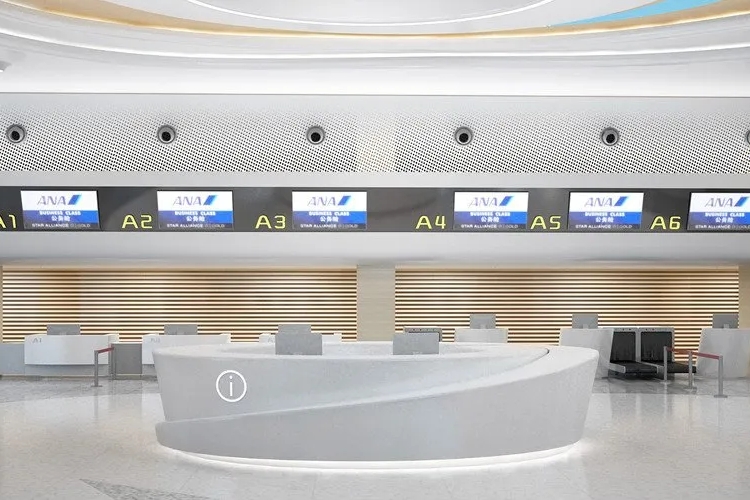
Jet nozzles and jet diffusers are key components in HVAC systems designed to manage airflow effectively. While both contribute to air distribution, they serve distinct purposes and operate on different principles. Understanding these differences is crucial for selecting the appropriate air nozzle diffuser solution for a given application.
What is a Jet Nozzle?
A jet nozzle is a specialized air nozzle designed to deliver a concentrated stream of air jet over long distances. These nozzles are often adjustable, allowing for accurate directional control of the airflow. Constructed from materials like aluminum or aluminium, they are durable and suitable for a range of environments. Common applications include airports, shopping malls, and other large rooms where long throw capabilities are required.
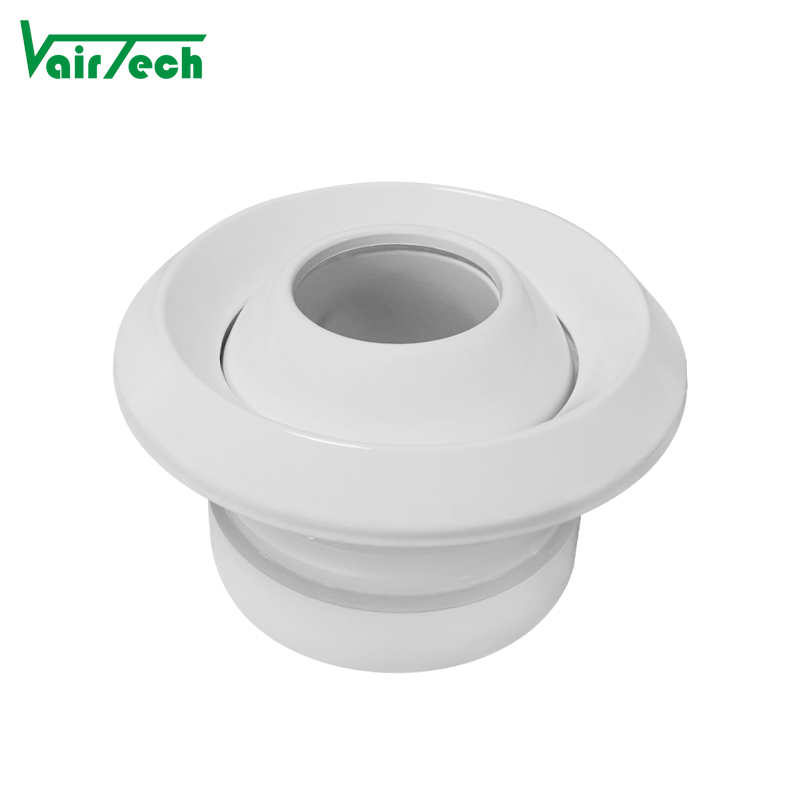
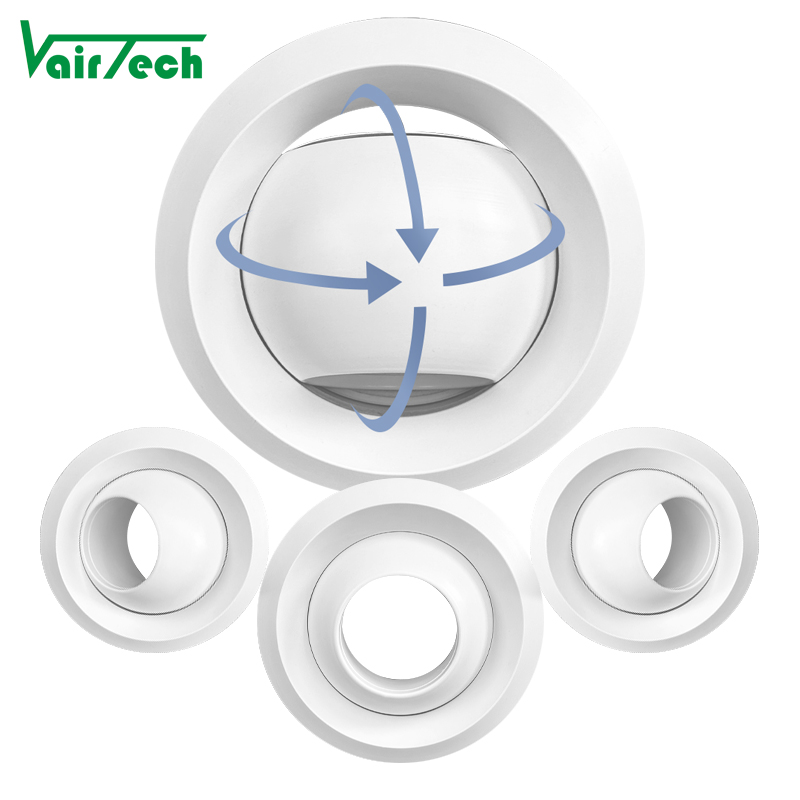
Diffusers, unlike jet nozzles, are made to disperse airflow more broadly. An air diffuser ensures even distribution of cool or warm supply air, and this is often accomplished through specific design elements, such as:
A linear slot diffuser, for example, offers a sleek, architectural design while providing efficient airflow. The right diffuser can improve aesthetics while maintaining a low noise level.
Air nozzle diffusers are available in different types, each suited for particular applications. Here’s a summary of some common options:
| Diffuser Type | Key Features |
|---|---|
| Ball Jet Nozzle | Adjustable airflow, directional control |
| Linear (e.g., Linear Slot Diffuser) | Linear design |
The selection process depends on factors like duct size, duct opening dimensions, and desired throw distance. Some models are available in a white finish.
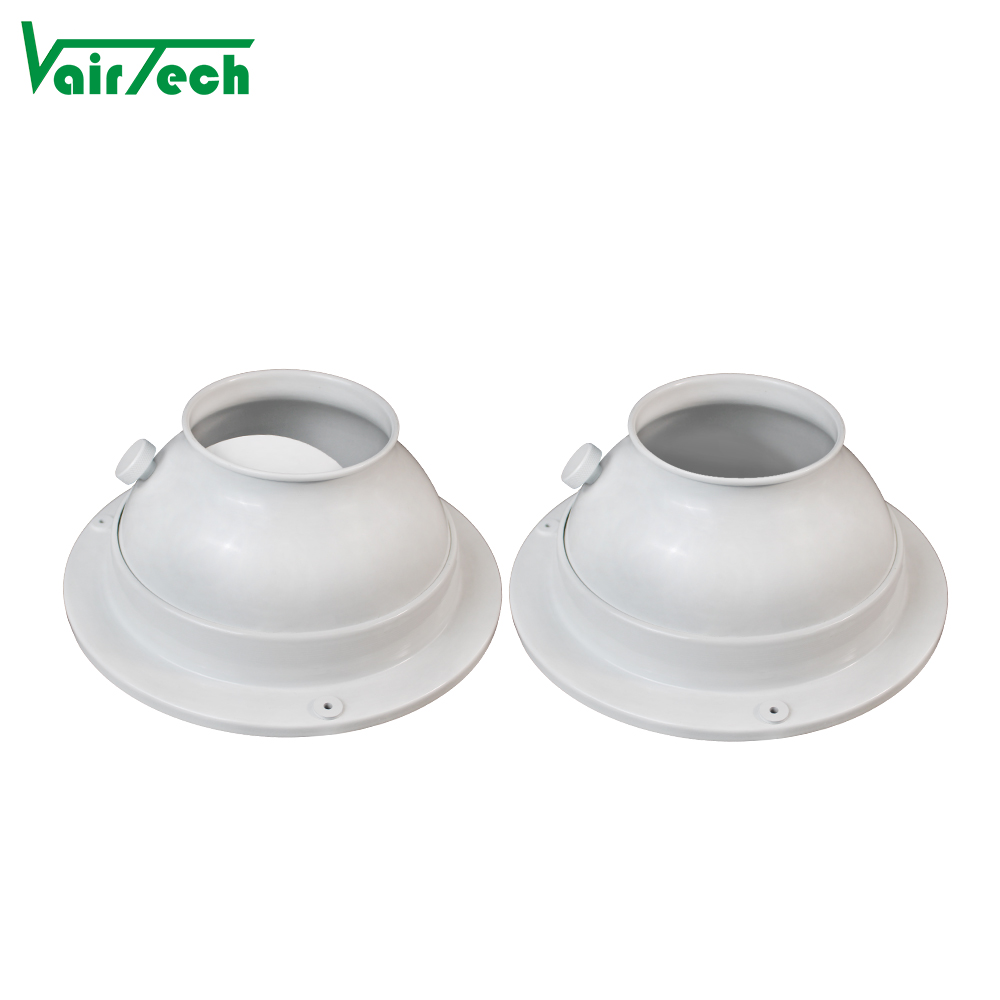
Features of Jet Nozzle Diffusers
One of the key features of jet nozzle diffusers is their adjustable airflow capabilities. A jet nozzle often includes a mechanism to modify the direction and intensity of the air jet. The directional control enables precise targeting of supply air. This ensures effective ventilation even in large spaces. This level of airflow customization makes jet diffusers suitable for environments with changing occupancy or heating/cooling needs.
Low noise operation is a critical consideration for many HVAC applications. Jet diffusers are often designed with features that minimize air flow turbulence, thereby reducing noise. By selecting an aluminum or aluminium nozzle diffuser with optimized slot geometry and internal dampening, it is possible to maintain a comfortable acoustic environment. This is especially important in spaces like offices, hospitals, or libraries where a low noise level is essential.
Jet nozzle diffusers are versatile components in HVAC systems, excelling in environments needing specific airflow control. With their adjustable features and ability to project air over long distances, they’re suitable for a wide range of large spaces. The air nozzle diffuser can be implemented in environments needing accurate directional control and effective supply air distribution.
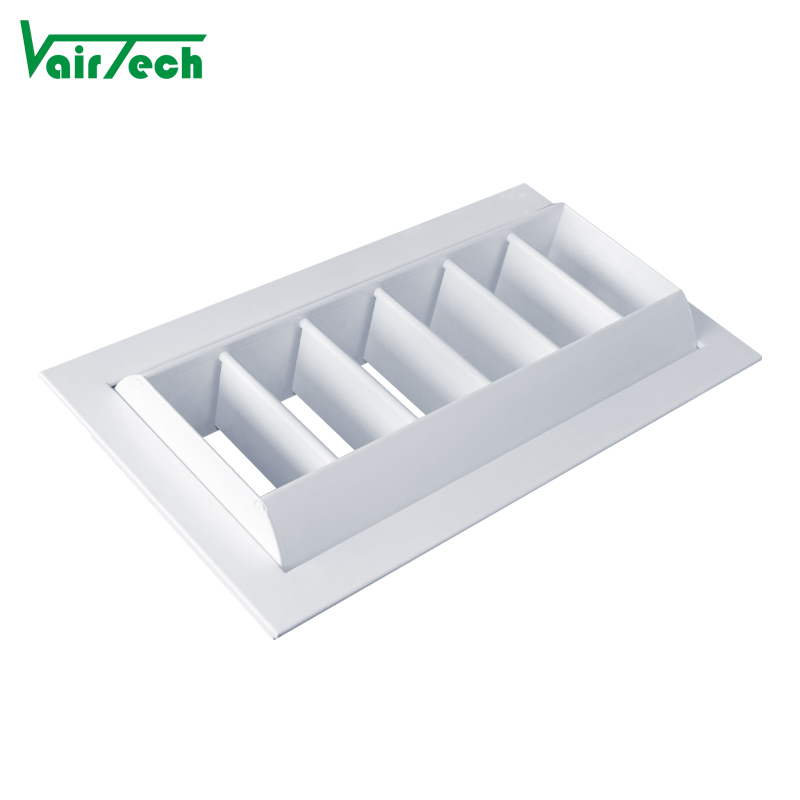
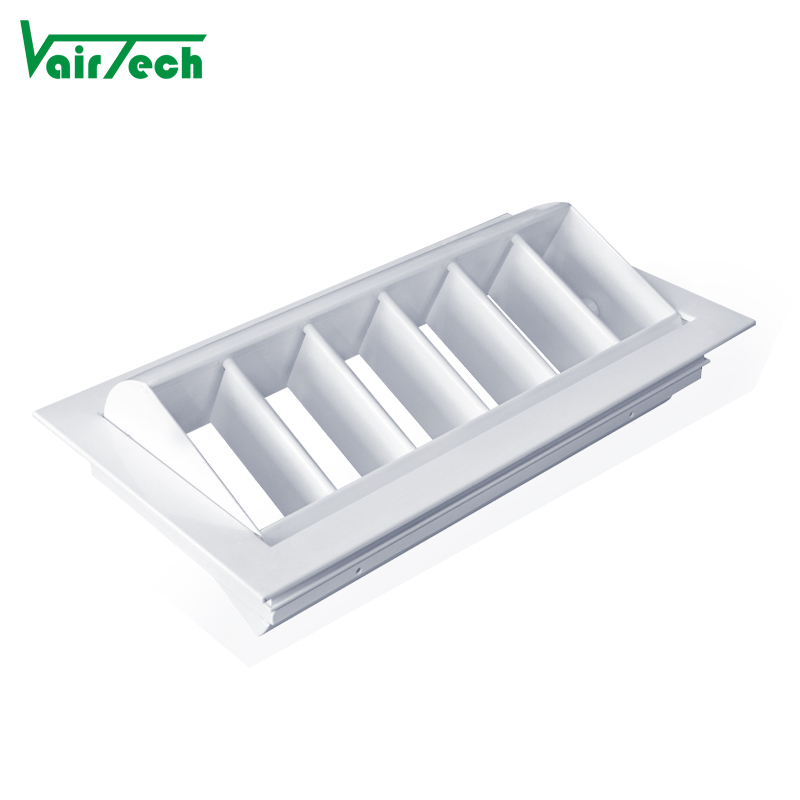
In commercial settings like airports and shopping malls, jet nozzle diffusers are commonly employed because of their ability to deliver long throw capabilities across large rooms. Residential applications may see jet diffusers used in large spaces; however, traditional air diffusers are often preferred in smaller, standard-sized rooms due to aesthetics and low noise level considerations.
The design of the jet nozzle diffuser is aimed at maximizing air flow efficiency. The jet nozzle directs an air jet precisely, while the air diffuser component ensures proper mixing of supply air. This leads to more uniform temperature distribution and reduced energy consumption. Optimizing airflow contributes to a more comfortable and cost-effective HVAC system.
Properly designed and maintained jet nozzle diffusers contribute positively to indoor air quality. By ensuring adequate airflow and ventilation, they can help reduce the concentration of pollutants. Regular cleaning of the louver and vent cover further ensures the delivery of fresh air. Careful selection of an aluminium nozzle diffuser can improve air quality.
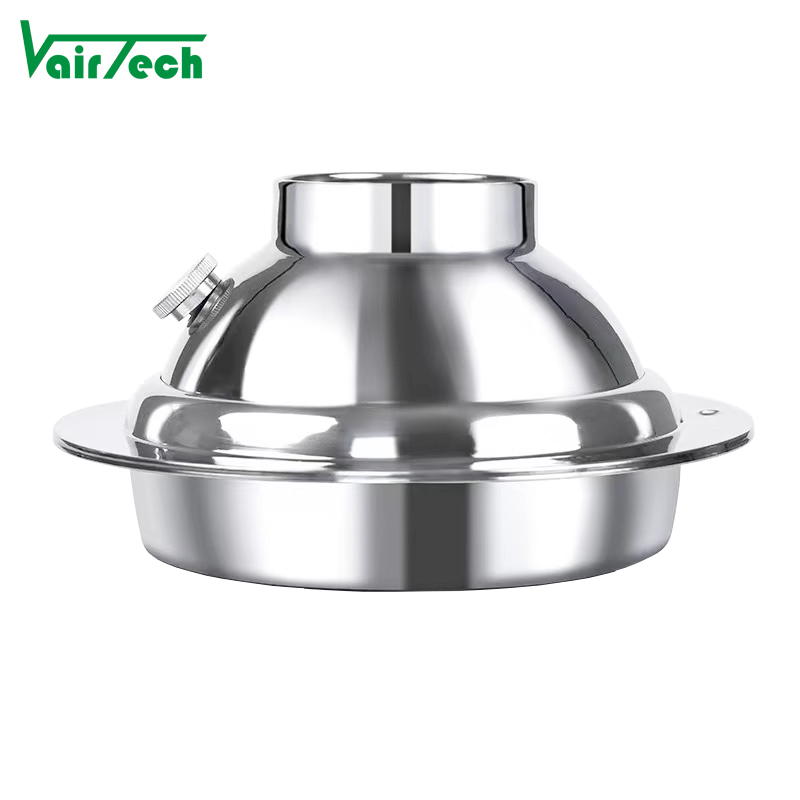
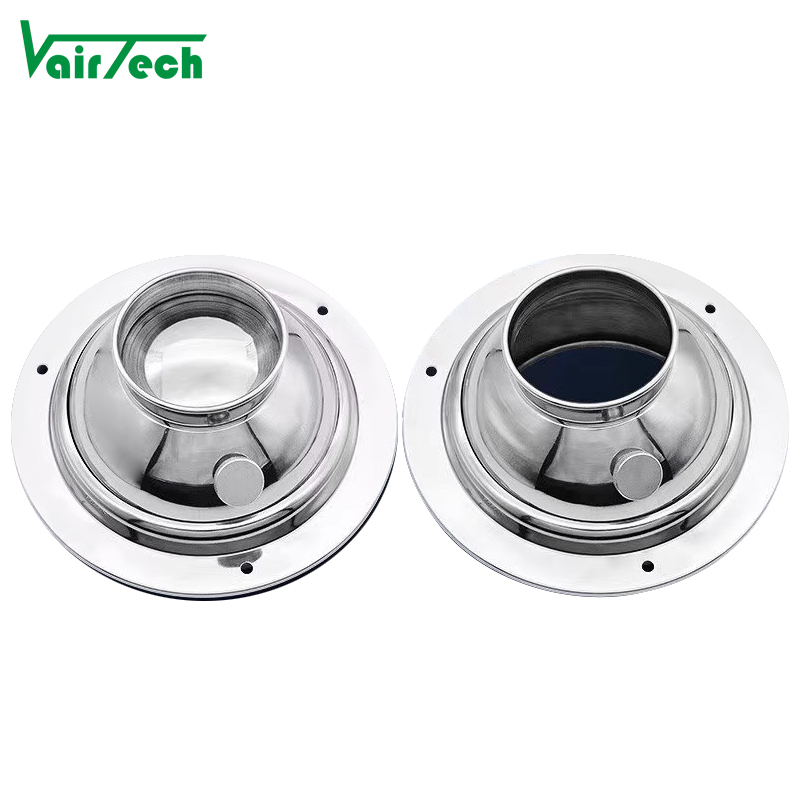
Selecting the right type of air diffuser depends on the specific needs of the space. Jet nozzle diffusers and traditional air diffusers each have their strengths and weaknesses. Evaluating the advantages and disadvantages can help optimize the HVAC system. Understanding the differences between a jet nozzle and a standard air vent helps in proper selection.
Jet nozzle diffusers are particularly advantageous in large spaces where long distance throw is necessary. Their adjustable airflow and directional control allow for precise targeting of supply air, addressing localized heating or cooling needs. The durable construction from materials like aluminum ensures longevity and reliability. A ball jet nozzle ensures optimal control over the air flow.
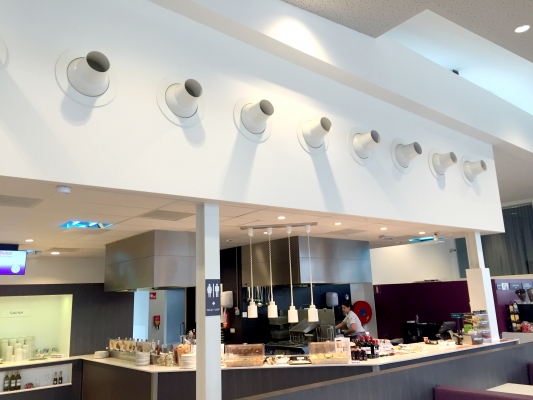
Traditional air diffusers are often preferred in smaller, standard-sized rooms or residential settings. These diffusers typically offer more subtle aesthetics. They are designed for broader dispersion of air flow. A linear slot diffuser can blend seamlessly into the architectural design, making them suitable where visual appeal is a key consideration. They are the best choice for a low noise solution.
The initial cost of jet nozzle diffusers might be higher compared to traditional air diffusers due to their more complex design and specialized functionality. However, the enhanced efficiency and targeted airflow may lead to long-term energy savings. Consider the installation costs, as well as the potential for reduced heating and cooling expenses. Also, consider mounting the nozzle properly to get better airflow.